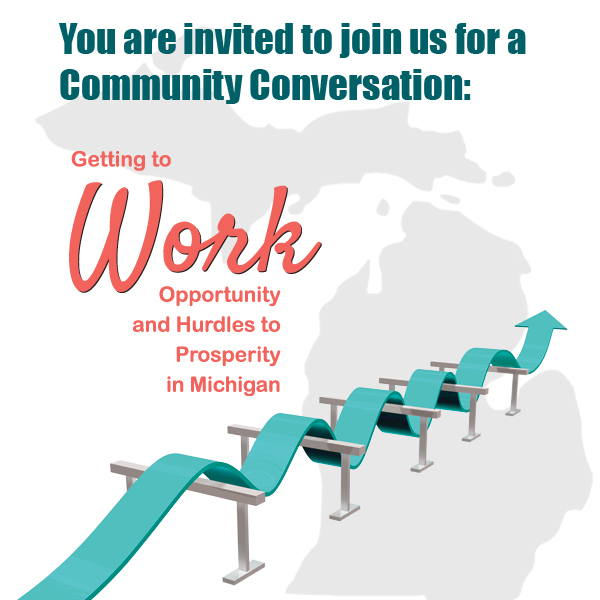Let’s get real for a quick second: the job market in Michigan, while recovering, is still nowhere near what it once was. Employment opportunities are increasingly difficult to find and, when found, often appear blurred by qualifications and expectations disconnected from the education we worked toward (and paid out the ass for) to get there. If this is frustrating for you, you’re not alone.

A disconnect exists between what an individual needs to live successfully and what our current system offers. Wages, education and services for job seekers appear to be working on three separate agendas, leaving those hungry for opportunities to succeed blindsided as they try to sort through the mess – it’s truly overwhelming. Despite promises to the contrary, goals are not always met with opportunity. The blame, coincidentally enough, is placed on job seekers – never on systemic structures.
While all of these complexities seem way too large for us to tackle, there is something we can do to make a difference. Center for Michigan is keeping these issues at the forefront of their mission. By initiating conversations with different communities across the state of Michigan, the nonprofit/nonpartisan organization is productively sparking a response to the government system surrounding education and employment many citizens believe needs vast improvement. In doing so, they are providing legislature with a Citizen’s Agenda Report that amplifies the voices of those living in the thick of it all – those with voices that often go unheard or underrepresented.

So what do these conversations consist of? Offered in three different modules – Career Navigation, College Value and Affordability and Challenges to Upward Mobility – community conversations address specific aspects of access and preparation for the workforce in our state. Each module provides space for open dialogue about the reality of employment planning, assistance and availability, creating unique opportunities to address what’s working, what isn’t and what could. The big picture effort is to gather concrete data surrounding the opportunity drought and enlighten legislative endeavors for future planning.
While these conversations are important for those navigating the system with difficulty, they are also important for students, parents, educators and business leaders. A few thoughts:
- Are high school students receiving the assistance they need through curriculum, programming or advising to navigate a future career?
- What role do parents and educators play in ensuring success for Michigan’s students? Even further, what resources do we have to help them prepare and guide our future leaders through an increasingly difficult educational journey?
- As a business leader and employer, what discussions are you having with secondary education institutions to ensure your future employees have the skills and knowledge they need to succeed? Are you even having discussions?

So we pose one question to you: what are you doing to make Michigan the best state to live, work and play? As a city leading the post-recession charge at both the state and national level, it is our responsibility to actively participate in discussions like this to aid in developing creative solutions that will affect positive change for all people in all communities.
To bring a Getting to Work Community Conversation to your community, contact the organization’s Outreach Director, Amber DeLind (adelind@thecenterformichigan.net), or West Michigan facilitator, Chantell LaForest (telly@834design.com). Here’s to bettering the future of employment in Michigan.









